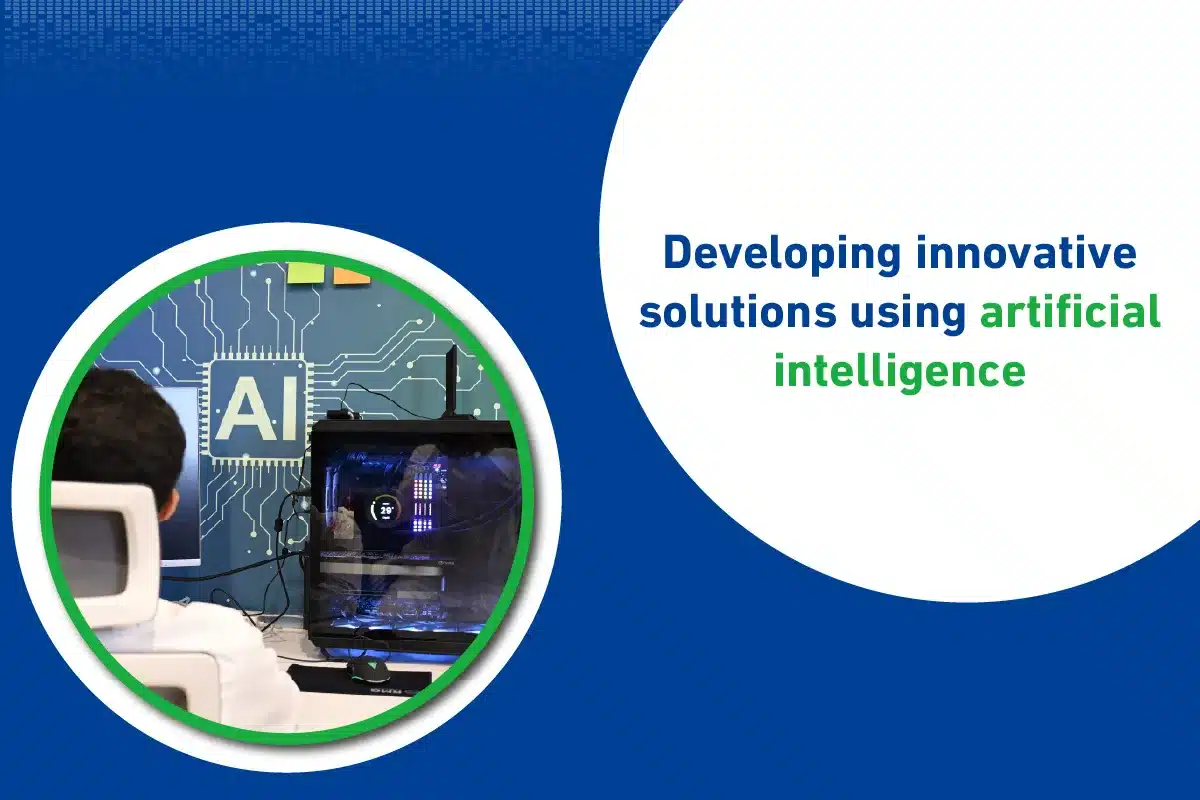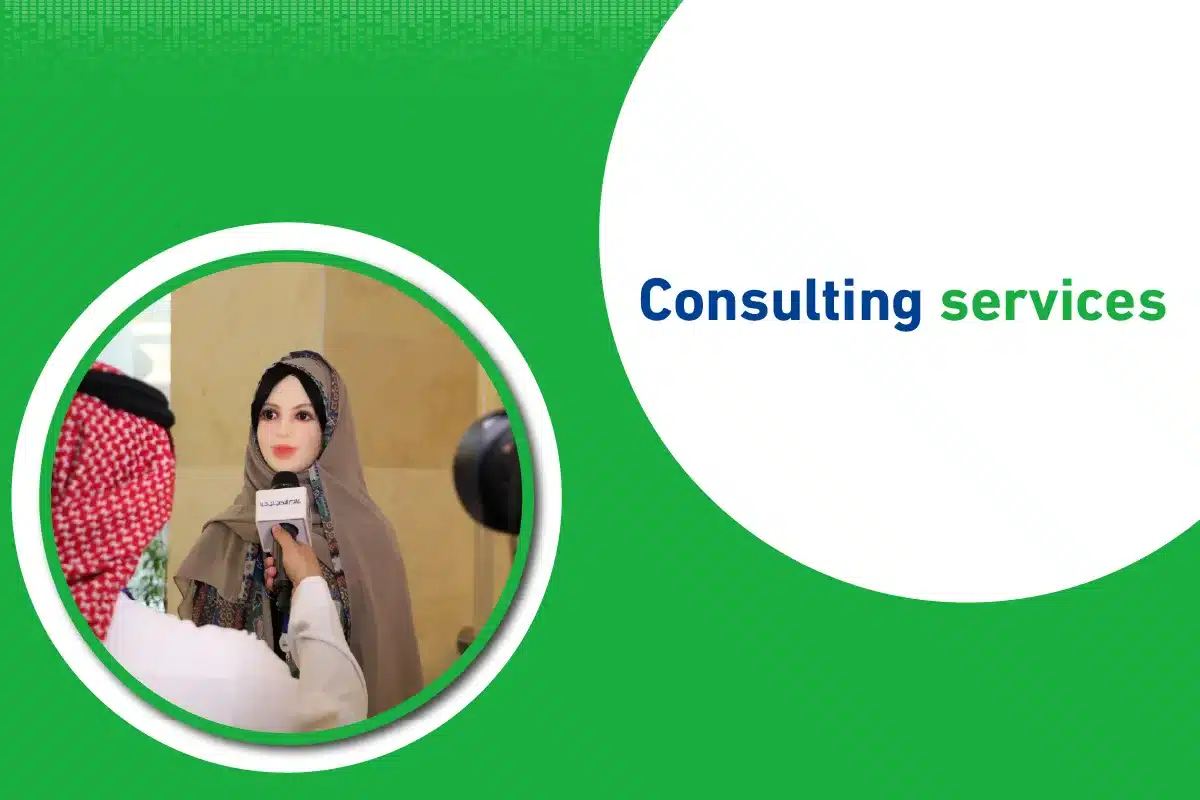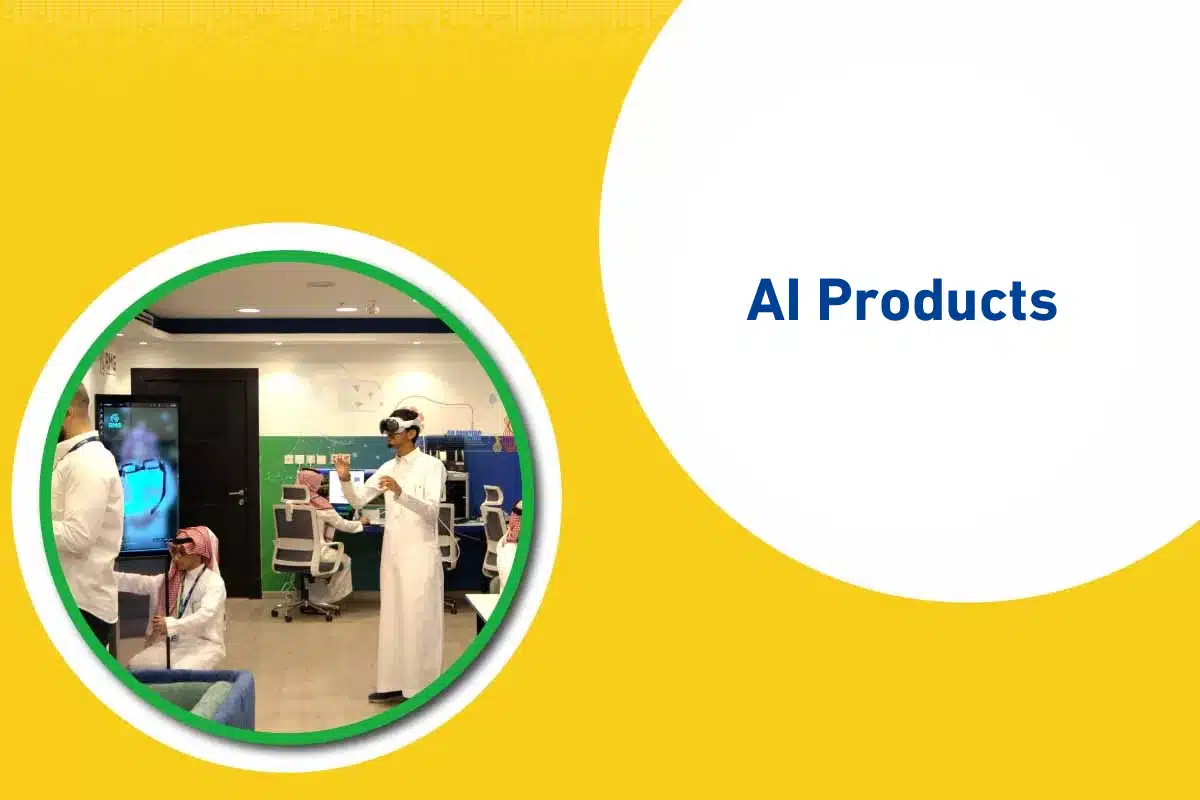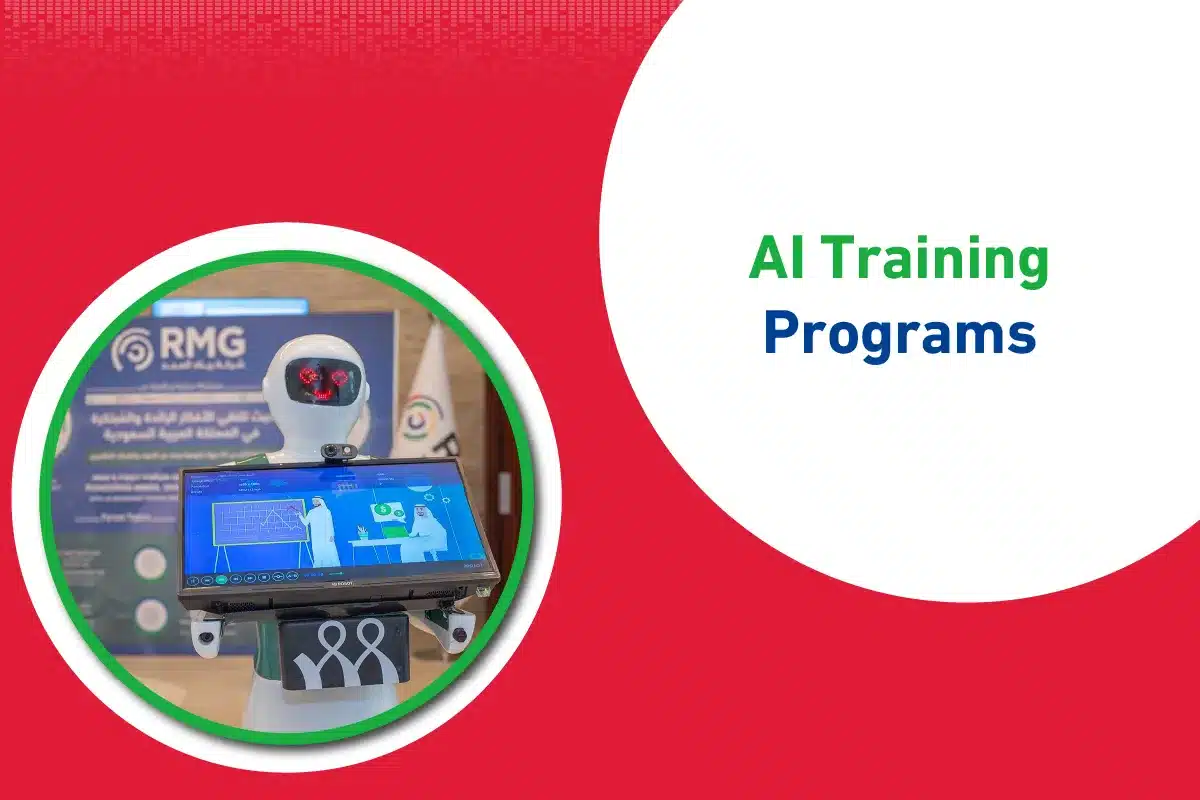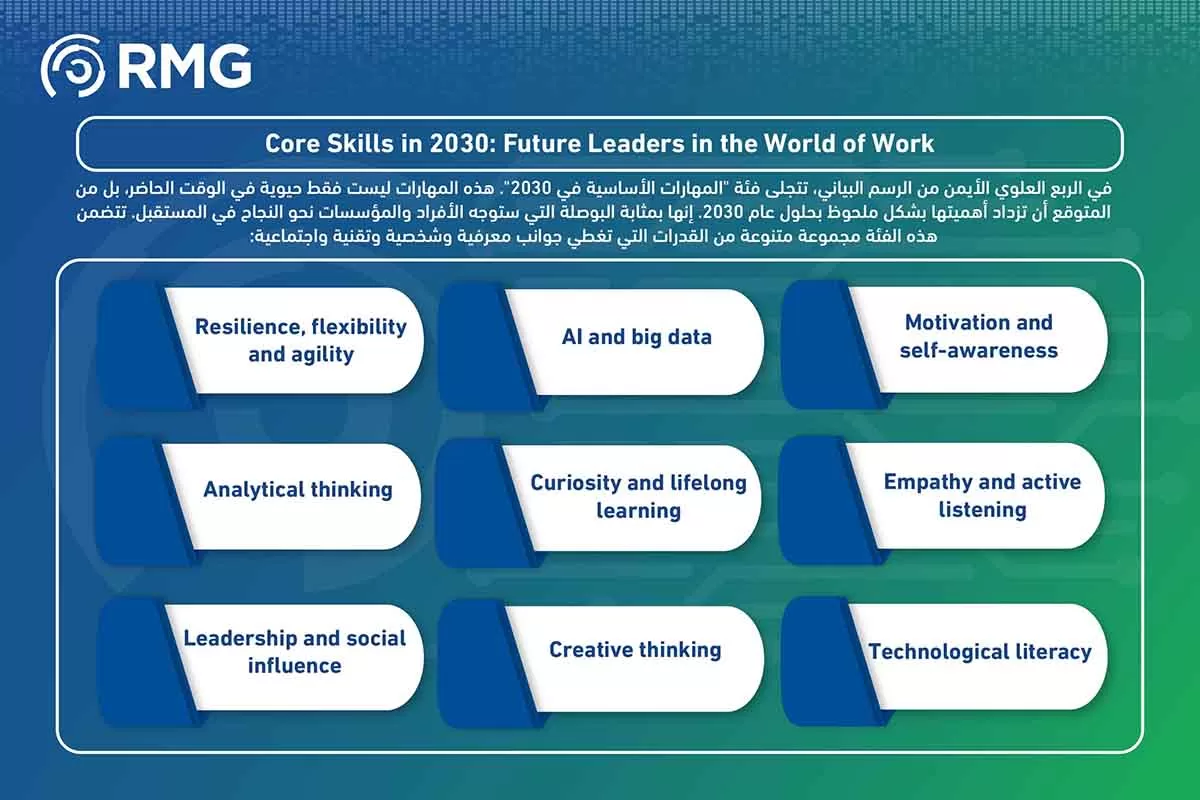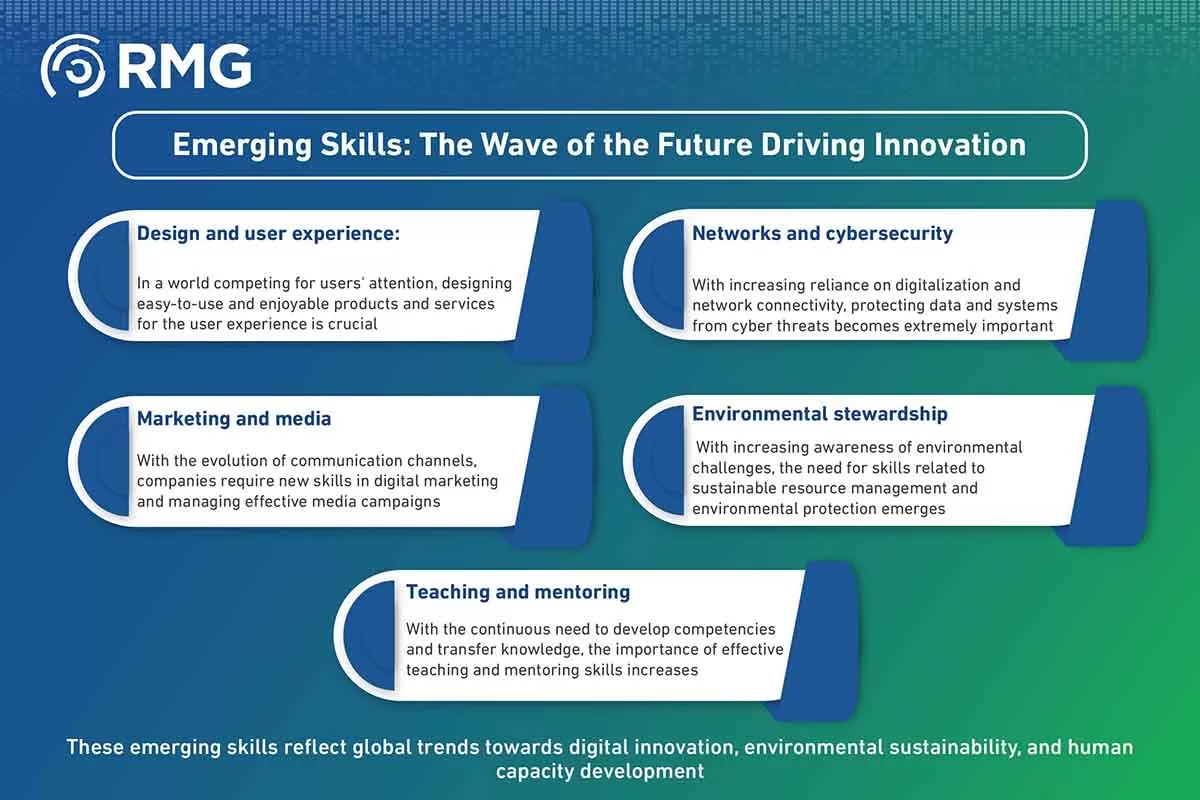Blog Body
Are you ready for the job of the future? Discover the essential skills that will shape the labor market in 2030 based on the World Economic Forum report, and how you can prepare now.
Amidst the accelerating transformations our world is witnessing, a central question emerges, resonating in the corridors of companies, educational institutions, and ambitious individuals alike: What are the skills that will enable us to thrive in the future labor market? The World Economic Forum report (Future of Jobs Survey 2024) offers us valuable insights that delineate these essential skills by 2030, through an in-depth analysis of business leaders’ opinions on the importance of current skills and their expectations for the growth of their use in the coming years. Let’s delve into this important report and explore the skills roadmap that will lead us towards a promising future.
A Panoramic View of the Skills Landscape in 2030: Four Main Categories Shaping the Future
The report divides skills into four main categories based on two crucial axes: the current importance of the skill from the perspective of employers, and the expected increase in its use by 2030. This binary division provides us with a clear picture of the skills that should be focused on to prepare for the future of work.
- Core Skills in 2030: Future Leaders in the World of Work
In the upper right quadrant of the graph, the category “Core Skills in 2030” is evident. These skills are not only vital at present but are expected to significantly increase in importance by 2030. They serve as a compass that will guide individuals and organizations towards success in the future. This category includes a diverse set of abilities covering cognitive, personal, technical, and social aspects:
- Resilience, flexibility and agility: In a constantly changing world, the ability to adapt to new circumstances and quickly recover from challenges becomes extremely important. Resilience is key to survival and thriving in the face of volatility.
- Analytical thinking: With the enormous flow of data, the ability to analyze complex information, draw logical conclusions, and make informed decisions is an indispensable skill.
- Leadership and social influence: Leadership is not limited to senior management positions; it includes the ability to motivate, inspire, and positively influence others to achieve common goals.
- AI and big data: Understanding the basics of artificial intelligence and the ability to deal with big data is no longer a luxury, but has become a fundamental necessity for understanding trends and making strategic decisions.
- Curiosity and lifelong learning: In a rapidly accelerating knowledge world, a passion for learning and continuously acquiring new skills is the passport to sustainable professional development.
- Creative thinking: The ability to generate new ideas and innovative solutions to complex problems is a real competitive advantage in the business world.
- Motivation and self-awareness: Understanding strengths and weaknesses, the ability to self-motivate, set goals, and strive to achieve them, is the foundation of personal and professional success.
- Empathy and active listening: Building strong relationships and understanding the needs and perspectives of others through active listening and empathy enhances cooperation and improves communication.
- Technological literacy: The ability to efficiently use and understand different technologies has become imperative in all aspects of working life.
These skills belong to four main groups: cognitive skills that focus on thinking and problem-solving, self-skills that relate to self-management and personal development, technical skills that include dealing with modern technologies, and social skills that focus on interaction and cooperation with others.
- Emerging Skills: The Wave of the Future Driving Innovation
In the upper left corner, we find the “Emerging Skills” category. These skills may not be sufficiently essential at present, but are expected to see significant growth in their use and importance by 2030. They represent areas that are rapidly evolving and hold promising opportunities:
- Networks and cybersecurity: With increasing reliance on digitalization and network connectivity, protecting data and systems from cyber threats becomes extremely important.
- Environmental stewardship: With increasing awareness of environmental challenges, the need for skills related to sustainable resource management and environmental protection emerges.
- Design and user experience: In a world competing for users’ attention, designing easy-to-use and enjoyable products and services for the user experience is crucial.
- Marketing and media: With the evolution of communication channels, companies require new skills in digital marketing and managing effective media campaigns.
- Teaching and mentoring: With the continuous need to develop competencies and transfer knowledge, the importance of effective teaching and mentoring skills increases.
These emerging skills reflect global trends towards digital innovation, environmental sustainability, and human capacity development.
- Steady Skills: Essential Pillars, But at a Constant Pace
In the lower right corner, the “Steady Skills” category is located. These skills are considered important at present, but are not expected to see a significant increase in their future importance. They represent the operational and procedural skills that remain necessary but at a lower growth rate:
- Operations and resource management: The ability to plan, organize, direct, and monitor operations and resources efficiently.
- Dependability and attention to detail: Paying attention to details and the ability to complete tasks accurately and reliably.
- Quality control: Ensuring that products and services meet required standards.
These skills primarily focus on operational and procedural efficiency rather than focusing on innovation or digital transformation.
- Out-of-focus Skills: A Decline in Importance Necessitating Re-evaluation
In the lower left corner, we find the “Out-of-focus Skills” category. These skills are no longer a major priority at present and are not expected to increase in importance in the future. This indicates a shift in the nature of work and the required skills:
- Programming: Despite the importance of programming, the proliferation of tools and platforms that facilitate operations may reduce the need for specialized programmers in some areas.
- Writing, reading, and mathematics: Although they are basic skills, the focus may shift towards analyzing and applying information more effectively.
- Sensory and dexterity skills: With increasing automation and robotics, the demand for some professions that rely heavily on these skills may decrease.
This shift reflects a move away from some traditional skills in favor of adaptive, digital, and behavioral skills.
Key Conclusions: Radical Shifts in the Labor Market Require Strategic Preparation
The World Economic Forum report provides us with a set of key conclusions that deserve deep consideration by individuals and organizations alike:
- AI and Technology: From Specialized Skills to Fundamentals for Every Employee: Knowledge of artificial intelligence and the ability to deal with technology are no longer limited to specialists. Rather, they have become an integral part of the essential skills that any employee must possess to succeed in the future work environment.
- Behavioral and Social Skills: Increasing Value in a Complex World: With the increasing human and organizational complexity in work environments, the importance of behavioral and social skills such as empathy, resilience, and leadership increases. These skills enable individuals to build strong relationships, cooperate effectively, and adapt to changes.
- Shifting from Hard Skills to Soft Skills Enhanced by Digital Knowledge: The report indicates a shift in focus from specialized technical skills (hard skills) to personal and communication skills (soft skills) supported by a strong understanding of digital technology.
Renad Al Majd: Your Strategic Partner in Building Future Competencies
In light of these rapid transformations in the labor market, Renad Al Majd (RMG) understands the importance of developing essential and future skills. We offer a comprehensive range of services specifically designed to help individuals and organizations prepare for the future of work and achieve their goals:
- Customized Training and Development Solutions: We design and implement specialized training programs focused on developing the core and emerging skills identified by the World Economic Forum report, including analytical thinking, creative thinking, leadership, technological literacy, cybersecurity, and sustainability.
- Human Resources Development Consulting: We provide in-depth consulting to organizations to help them assess their skill needs and design effective strategies for developing current competencies and attracting future talent.
- Interactive Digital Learning Platforms: We provide modern and flexible digital learning platforms that allow employees to develop their skills anytime, anywhere, with interactive content and advanced assessment tools.
- Team Building and Social Skills Enhancement Programs: We help organizations build cohesive teams and enhance essential social skills such as effective communication, collaboration, empathy, and conflict resolution.
- AI Solutions in Skills Development: We use the latest artificial intelligence technologies to identify skill gaps and provide personalized recommendations for training and development paths for individuals and organizations.
Together We Build the Future: A Strategic Partnership Towards Excellence
We invite all ambitious entities and organizations to collaborate with Renad Al Majd (RMG) on the journey of building the future of competencies. Through our strategic partnership, we can empower your individuals and organizations with the skills necessary to thrive in the ever-changing world of work. Let’s work side by side to design and implement innovative solutions that ensure your leadership and excellence in the future. Contact us today to explore how our expertise and integrated solutions can contribute to achieving your strategic goals and building a brighter future.







